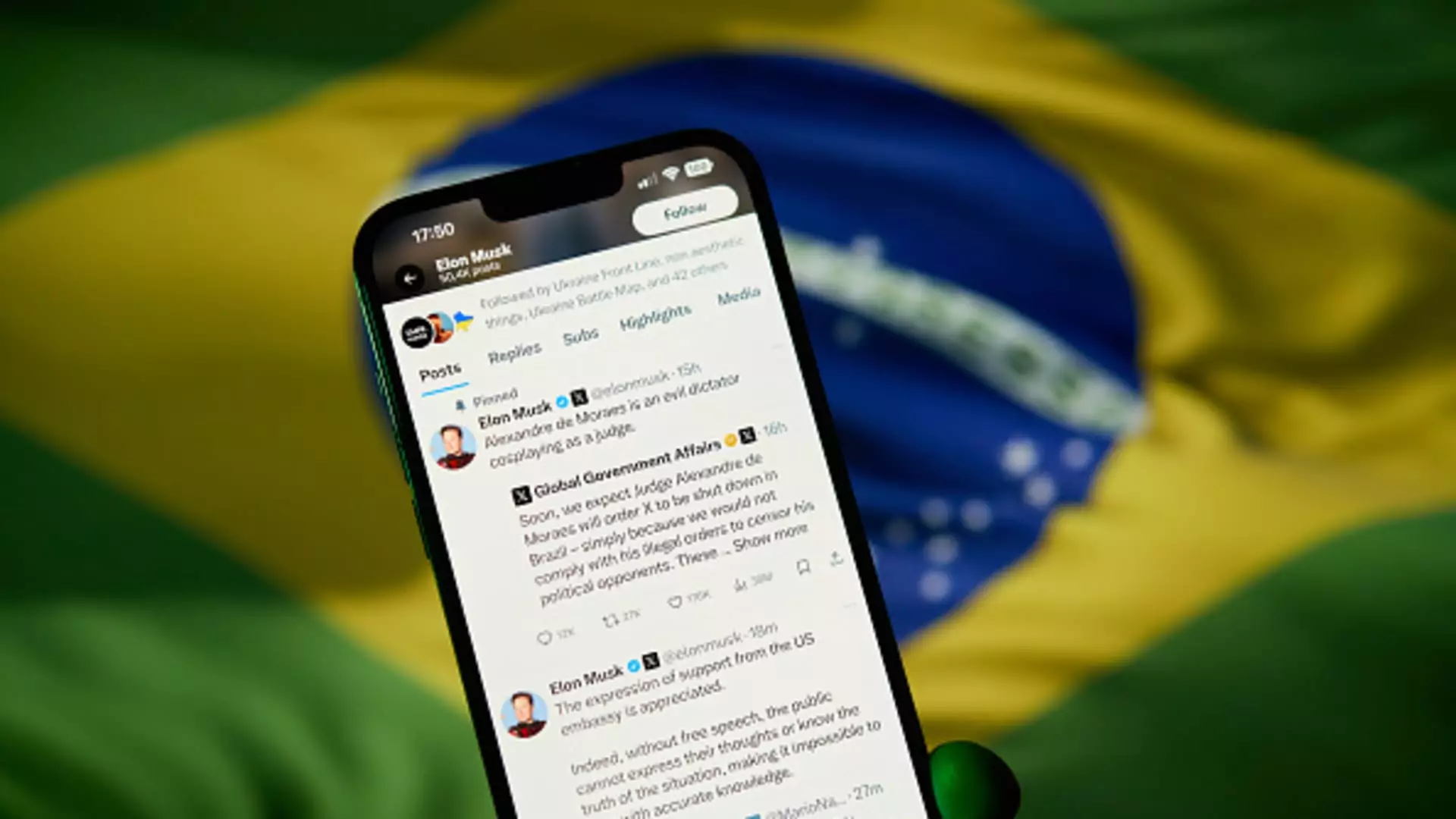In a recent and controversial move, Brazil’s federal supreme court justices voted unanimously to suspend the use of Elon Musk’s social network X across the nation. This decision came after the court ordered Musk and X to appoint a legal representative within 24 hours, or face the penalty of suspension. The court’s top justice, Alexandre de Moraes, issued the suspension orders which not only affected X but also resulted in the freezing of financial assets of Starlink, another business led by Musk.
Musk and his companies have openly opposed the court’s decision, claiming it to be illegal and lacking due process. The defiance from X in complying with court requests to take down accounts or posts led to the suspension. Musk escalated the situation by calling for an end to U.S. foreign aid to Brazil and threatening reciprocal asset confiscation for those supporting the current regime. The tech billionaire’s heated rhetoric and calls to impeach de Moraes have further stirred the controversy.
The suspension of X in Brazil has caused ripples among users and politicians, sparking debates on the legitimacy of the ban. While some users have faced difficulties navigating other social media platforms in X’s absence, there has been a reported uptick in activity on alternative networks like Bluesky. The move has highlighted the importance of social media in Brazil’s highly online population and the challenges of regulating online content.
Musk has often portrayed himself as a proponent of free speech, yet his actions have not always aligned with this image. While he has resisted orders from authorities in Brazil and Australia, X has censored content critical of ruling parties in Turkey and India under his leadership. This inconsistency raises questions about Musk’s commitment to free speech and the extent to which he values it in different contexts.
The suspension of X in Brazil and the subsequent backlash from Musk and his companies underscore the complex relationship between technology, free speech, and legal frameworks. The clash between a powerful tech mogul and a nation’s judiciary reflects broader tensions surrounding online content regulation and the role of social media platforms in shaping public discourse. Moving forward, this case will likely continue to provoke debates on the boundaries of free speech, governmental authority, and corporate responsibility in the digital age.


Leave a Reply